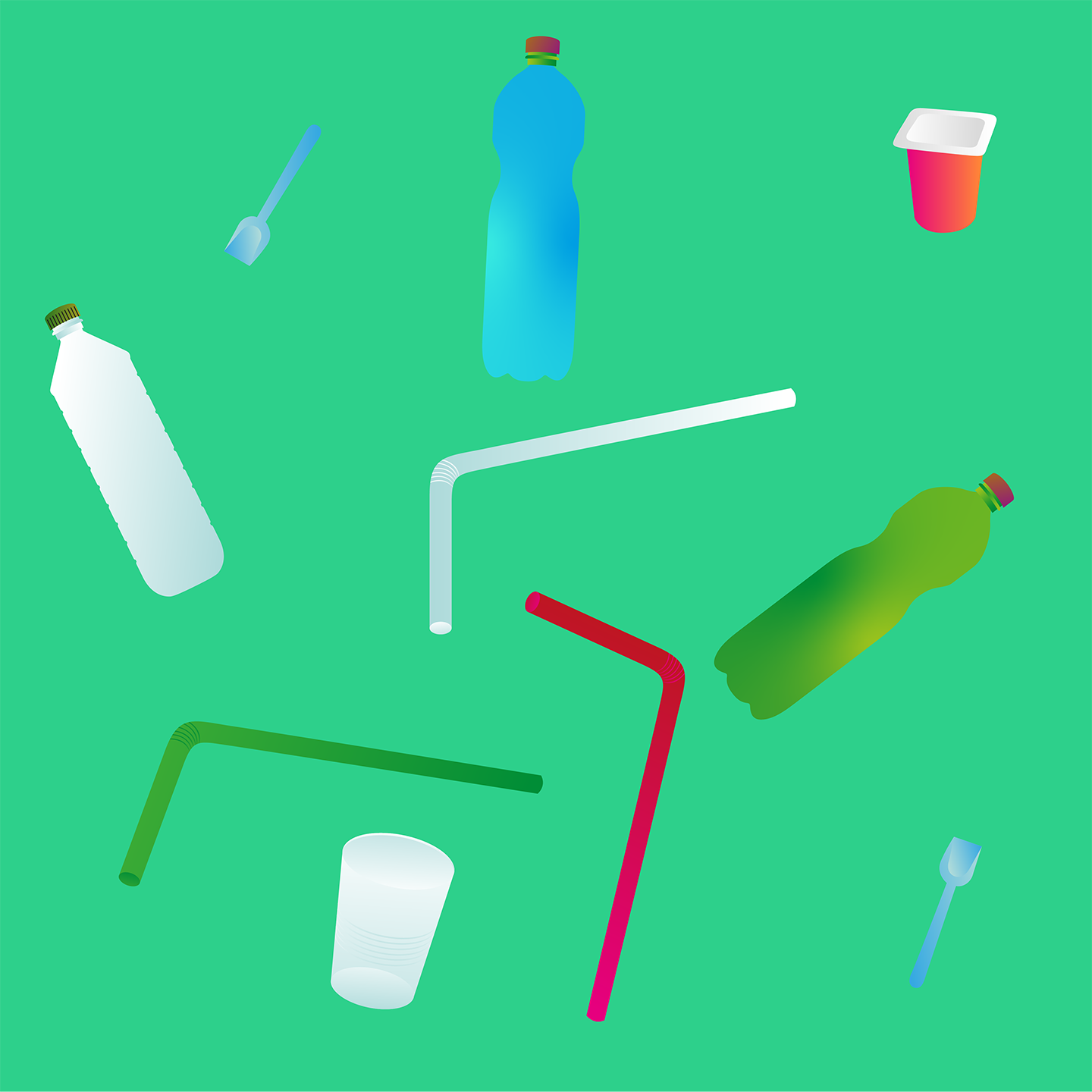Why
In 2019 the plastic product manufacturing sector generated 2.5 million metric tons of CO2 emissions (Statistica).
The UK is one of the biggest users of single-use plastic, ranking fourth globally, with 44kg of single-use plastic waste per person per year (BBC).
Single-use plastics are made from fossil fuels and can take up to 1000 years to decompose.
The decomposing process involves fragmentation into thousands of tiny pieces which end up in the ocean, soil and air. Their organic chemicals contaminate marine and terrestrial ecosystems, harming health, reducing growth and altering biological processes such as photosynthesis.
The damage done to our oceans - the most vital constituent of our climate system - is only just beginning to be understood, and is disastrous.
For the 150 million tons of single-use plastic produced in 2018, 750 million tons of carbon was created (Princeton University, 2020).
32% of single-use plastics make their way into our oceans each year, equivalent to pouring a rubbish truck’s worth of plastic into the ocean every minute.
How
Food & Beverage
Drink tap water.
Stop using straws or use paper straws.
Take your own reusable bags shopping.
Buy loose fruits and vegetables.
Buy package-free dried foods (nuts, grains, cereals, etc)
Avoid plastic bottles of water and replace them with durable alternatives.
Use a carbonated soda maker for fizzy water.
Leave unnecessary packaging in the shop where you bought it.
Ban takeaway cups and replace them with durable alternatives.
Household
Replace cling-film with beeswax, silicon or paper bags for food storage.
Use glass, tin, or other non-plastic food containers.
Dispense with bin liners or use compostable ones.
Personal Care
Use an eco-friendly toothbrush.
Buy bathroom products package-free or in glass jars.
Other
Switch to a biodegradable bank card or use your phone.
Choose phone cases made from recycled or biodegradable materials.
Recommendations
Food & Beverage
Eco Water Bottle
Ocean Bottle
A Good Bottle
SoL Cups
Dopper
Yogamatters
Eco Takeaway Cups
KeepCup
Circular&Co.
Totem
Libby Ballard
Household
Eco Bin Bags
Polybags
Ecovibe
Allgreen
Eco Mailing Bags
Elliott Packaging
No Issue
Polybags
Personal Care
Eco Toilet Paper
Who Gives A Crap
Bumboo
Naked Sprout
The Cheeky Panda
Ecoleaf
Tiboo
Eco Toothpaste
Georganics
Eco Tampons and Pads
OrganiCup
Mooncup
Modibodi
Eco Wet Wipes
Cheeky Panda Wet Wipes
Ecoegg Bamboo Wet Wipe Towels
Make-Up Removers and Face Wipes
Eco Shavers
Bambaw Razor
Wearth Razor
Eco Ear Buds
Last Swab Ear Bud
Oriculi Ear Bud
Did you know?
By 2050, CO2 emissions from single-use plastic could account for 5% - 10% of GHG emissions.
In 2020 over 50% of the plastic in the UK went to landfill or incineration (Department for Environment Food & Rural Affairs, 2021)
A world-leading plastic packaging tax will be introduced into the UK from April 2022 for plastic products which do not have at least 30% recycled content.
Aluminium is an eco-alternative to plastic, as 95% - 98% of the material can be recycled.
Environmental Facts
There are around 5000 pieces of plastic & 150 plastic bottles for each mile of an average UK beach (Surfers Against Sewage)
The number one form of beach pollution, by the number of items, are cigarette butts. This is because the butt is made up of non-biodegradable plastic.
Food & Drink Facts
2 billion single-use plastic bags are used in the UK each year (Carbon Footprint).
8.3 billion plastic straws are thrown away in the UK each year (Carbon Footprint).
Other Facts
In the UK alone, there are over 60 million credit cards and about 97 million debit cards in circulation. More than 30 million kg of PVC is used for banking card manufacturing.
The UK uses approximately 8 billion cotton buds, which were in the top 10 items collected during the Marine Conservation Society’s Great British Beach Clean (Condor Ferries).
Spread the word
In order to keep warming below 1.5C we need to halve emissions by
2030. Share this action and help play a part in reversing climate change.


